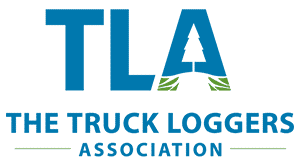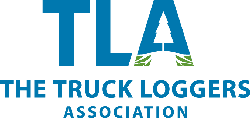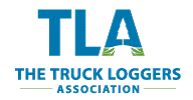
SAFETY.
Safety is of the utmost importance to members of the Truck Loggers Association. Learn more about how we strive to ensure safe logging practices are carried out across the province.
HELICOPTER EMERGENCY MEDICAL SERVICES REPORT.

2017 – BC Forest Safety Ombudsman Report on Helicopter Emergency Medical Services
This report initially focused on the effectiveness of the Helicopter Emergency Services (HEMS) strictly from a forest worker perspective. However, because the emergency medical transportation system is so inter-related, it was difficult to entirely separate out issues also affecting the general public. Therefore, some of the observations and recommendations contained in this report apply not only to the forestry sector but also to all residents of the province.
PRESS RELEASE.
February 3, 2017 Vancouver – BC Forest Safety Ombudsman, Roger Harris, released a report, Will It Be There? A Report on Helicopter Emergency Medical Services in BC, about emergency medical transportation services found in rural BC and how it affects forestry workers.
BC FOREST FIRES..
THANK YOU FIRE FIGHTERS!
- Thank you to all the forest workers who have taken their equipment and left their homes and families to help fight the forest fires in BC.
HOW CAN I STAY INFORMED?
- For BC Wildfire Service contacts, click here
- For the latest information on current wildfires, road closings and air quality advisories, visit B.C. Wildfire Service and Emergency Info BC. Also follow the hashtag #BCWildfire and these Twitter handles: @EmergencyInfoBC and @PreparedBC.
- Information about the location of hospital patients relocated due to fires is available at 1-877-442-2001.
- Evacuees can register with Red Cross by calling 1-800-863-6582.
- Individuals who have been displaced can go to any pharmacy in BC for refill or replacement prescriptions, according to a B.C. Pharmacare Policy.
HOW CAN I HELP THE PEOPLE AFFECTED?
- The government has published an information bulletin on how to donate effectively so your money goes where it is needed.
- Donate through the Canadian Red Cross’ British Columbia Fires Appeal webpageor call 1 800-418-1111.
- You can also text FIRES to 45678 to donate $10 to the Canadian Red Cross BC Fires Appeal.
- Several other organizations are partnering with the province to provide aid: CanadaHelps, FoodBanks BC, The Salvation Army, United Way, and BC Liquor Stores
WORKSAFEBC HIGH RISK STRATEGY.
WorkSafeBC’S High Risk Strategies identify and target industries and employers with a high risk of serious workplace injury and a significant contribution to the serious injury rate. Based on the incidence of serious injuries and work-related deaths, the High Risk Strategies include four industry sectors: construction, forestry, health care, and manufacturing.
Collectively, the High Risk Strategies are designed to reduce the serious injury rate through implementation of risk-reduction tactics directed towards high-risk work activities. The primary role of the High Risk Strategies is to identify categories of serious injuries and to develop planned approaches to effect change, thereby reducing the risk of serious injuries. Each strategy focuses prevention initiatives on identified areas of high risk in order to apply resources and effort where they will be most effective.
- Manual tree falling
- Log transportation
- Cable yarding
- Mechanized harvesting
DAY OF MOURNING.

The Day of Mourning is a day intended to recognize those who lost their lives as a result of a work-related incident or occupational diseases.
In 2016 there were 144 work related fatalities in BC: 10 were directly related to forestry operations and 2 were related to forest products manufacturing. This year ceremonies will be held April 28th to commemorate workers.
Day of Mourning ceremonies have been held across the country ever since the Canadian Labour Congress initiated a national Day of Mourning ceremony on April 28, 1984 and is now recognized annually around the world in more than 100 countries.
April 28 was chosen because it was on this date in 1914 that the first Workers’ Compensation Act was brought into effect in Canada.






Get Social